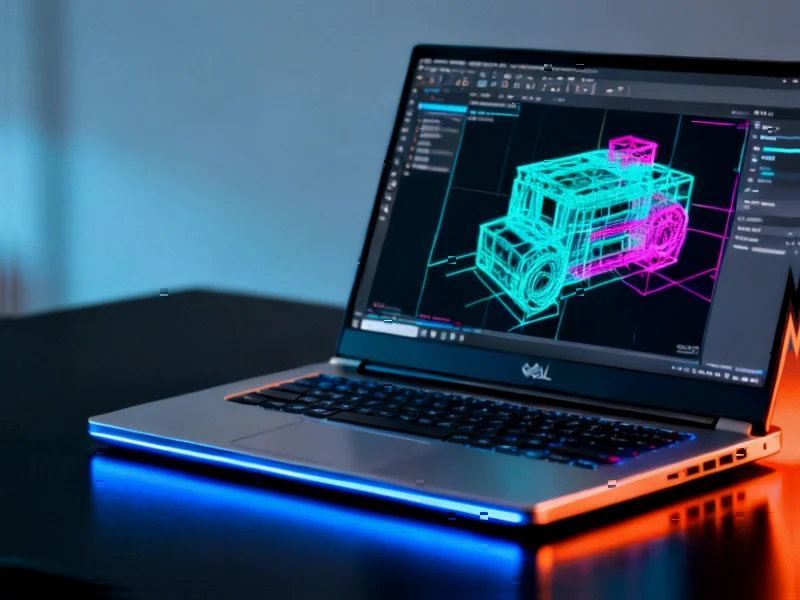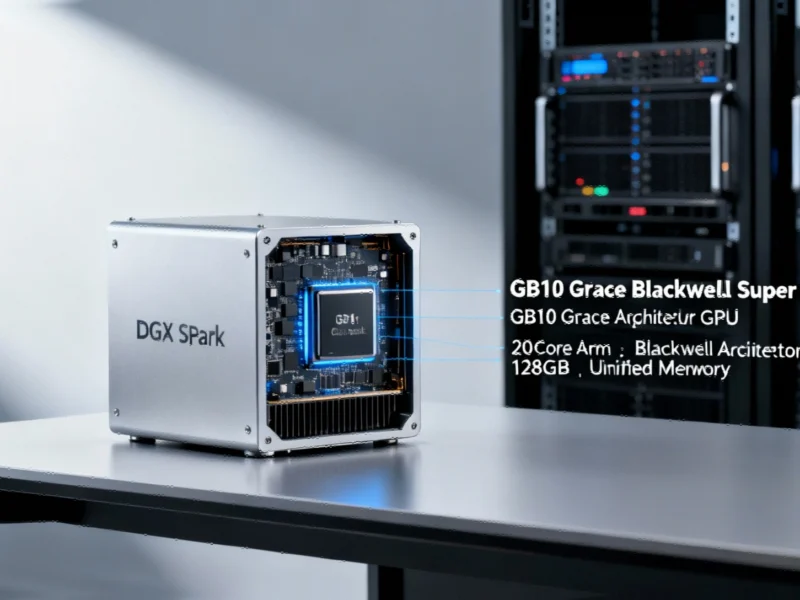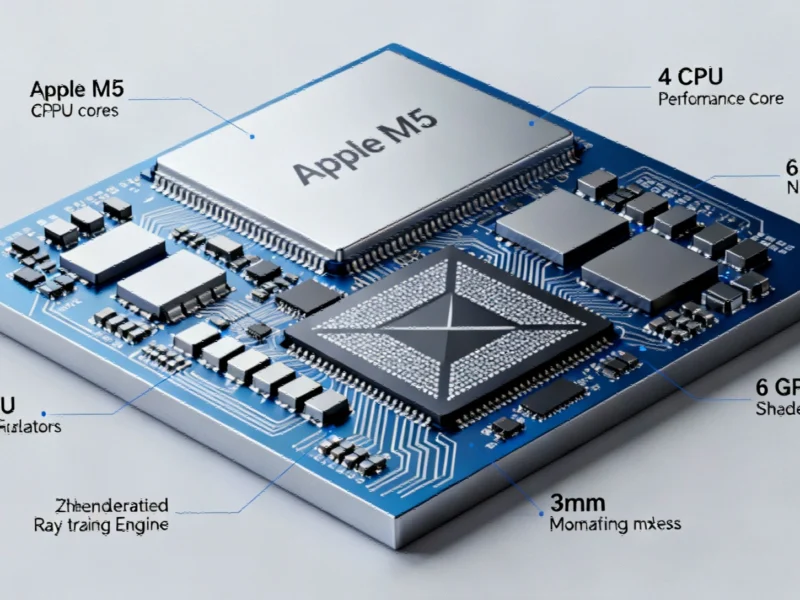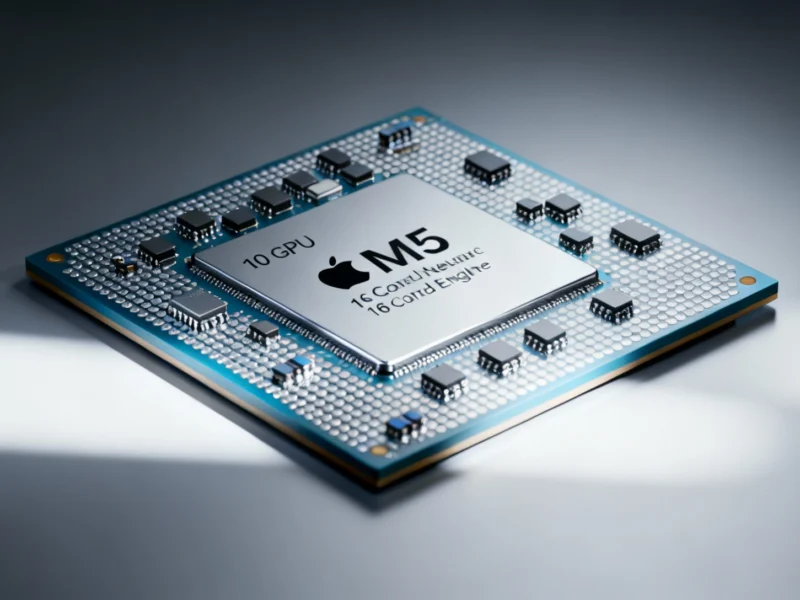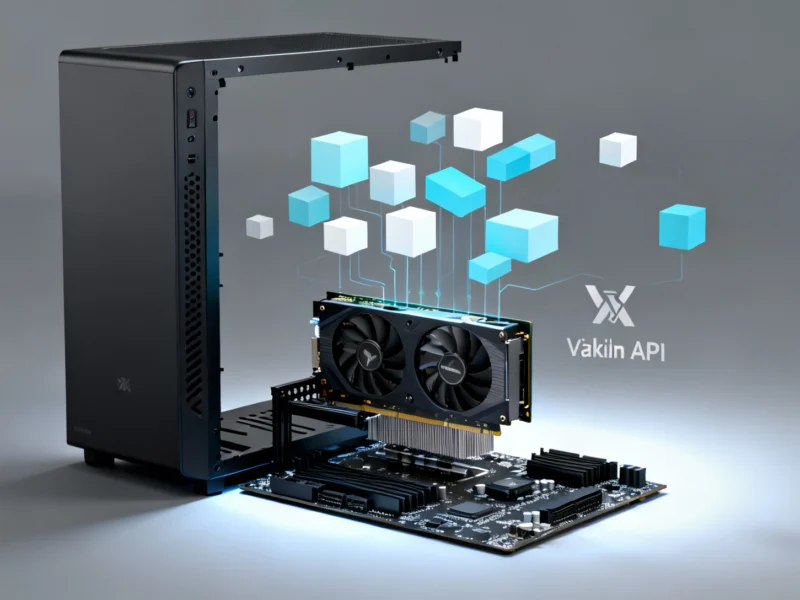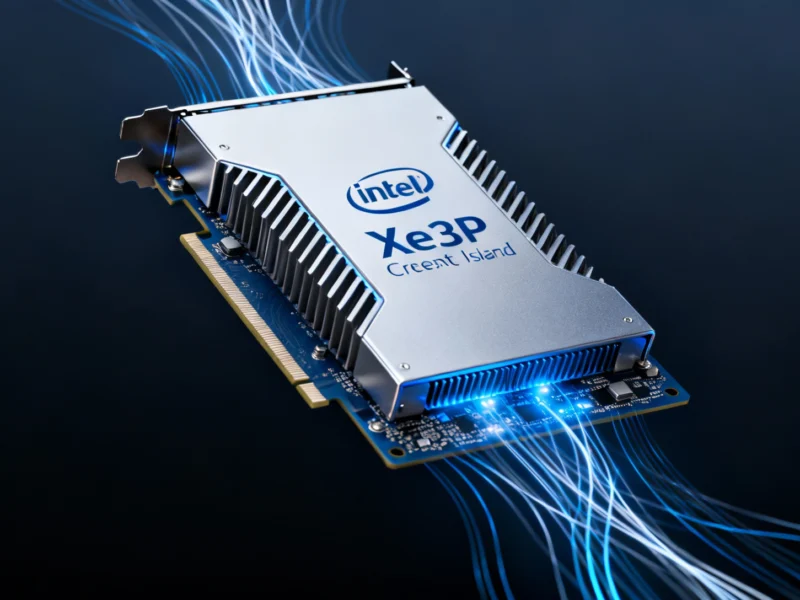Intel has unveiled its Xe3P architecture-based Crescent Island graphics card featuring 160GB of VRAM specifically optimized for AI inference workloads. The new GPU, reportedly set for release in late 2026, enters an increasingly competitive AI hardware landscape where Nvidia and AMD are also preparing next-generation offerings. Industry analysts suggest this could reshape the AI infrastructure market currently dominated by Nvidia solutions.
Intel Challenges AI Hardware Status Quo
According to recent reports, Intel has announced its next-generation Crescent Island inference-optimized GPU based on the Xe3P architecture, marking a significant entry into the competitive AI hardware space. Sources indicate this new graphics card will feature up to 160GB of VRAM and is specifically designed to accelerate AI inferencing workloads, potentially challenging Nvidia’s current dominance in the sector.
